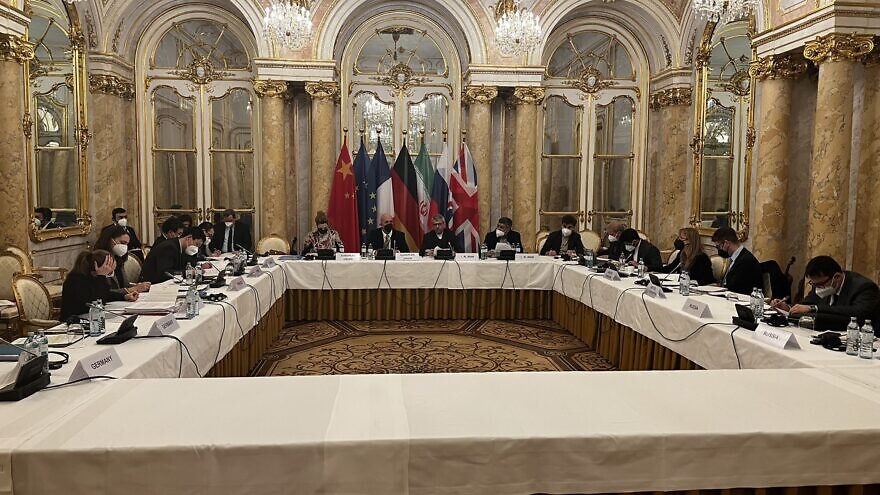An Iranian news agency affiliated with the Islamic Revolutionary Guard Corps lashed out on Tuesday at Israel’s delegation to the nuclear talks in Vienna.
“The open and unexpected presence of the Zionists in Vienna undoubtedly represents a deterring factor to progress in the Vienna talks at the current sensitive juncture,” tweeted Nour News in Hebrew. “The dialogue between Israel’s representatives and [International Atomic Energy Agency Director-General Rafael Grossi] and [Russian envoy to the talks Mikhail] Ulyanov, whatever their purpose, is a step toward fulfilling this regime’s characteristic destructive role,” the tweet continued.
Zarka met on Tuesday with Robert Malley, the lead U.S. negotiator of the 2015 deal, as well as with negotiators from Russia, China, France, the United Kingdom and Germany. On Monday, he met with IAEA director Grossi.
Talks over Iran’s nuclear activities resumed last week after halting at the end of last month. Parties to the deal have been negotiating in the Austrian capital since last year, without Israeli involvement and with indirect U.S. participation.
“Unlike others, we’re not looking to fight for the sake of fighting. Rather, we’re trying to bring a result,” Bennett said at the time.
Foreign Minister Yair Lapid told The New York Times around the same time that Jerusalem would rather Washington and other powers walk away from the nuclear talks than reach a “bad deal.” He said that the best-case outcome of the Vienna talks was what he referred to as a “good deal” with Iran.
Shortly after talks resumed, Iran unveiled a new missile with a range of 900 miles—capable of hitting U.S. bases throughout the Middle East or locations in Israel, Tasnim News Agency reported.
On Tuesday, Iran’s top security official said a “guarantee” and “verification” would be needed to salvage the 2015 nuclear deal, in an apparent reference to the United States.
The latest round of talks, the eighth, opened 10 days after negotiations were adjourned for the Iranian negotiator to return home for consultations. The previous round, the first after a more than five-month gap caused by the arrival of a new hardline government in Iran, was marked by tensions over new Iranian demands.
This is an edited version of an article that first appeared in Israel Hayom.


























